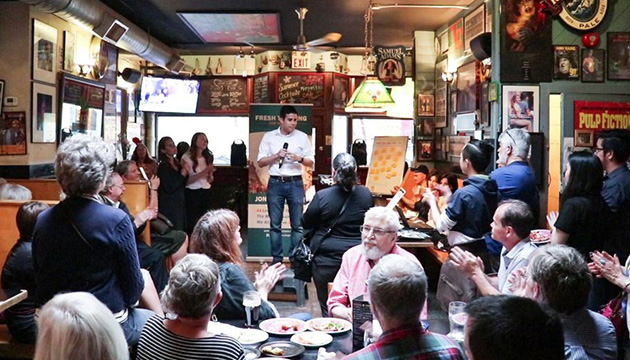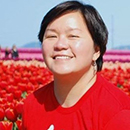One word changed the course of a boy’s life.
Jon Callegher was a fifth grader at the St. Gabriel Catholic School in Ontario when, during a shouting match with a classmate, the “N” word was thrown at him. Callegher is the son of a Filipino mother and Italian father.
Callegher recalls, “I’ll remember that moment forever - it was jarring and confusing.” His mouth dropped and the only utterance that came out from it was “whattt?”. He realized that, among his classmates, he was the closest to being black. “I was different,” he muses. “I was, relatively speaking, a highly visible minority.”
As a child growing up in Windsor, Ontario, Callegher’s friends were all Caucasian, one of whom politely informed Callegher that his mother had an accent. “It had never occurred to me that she did,” he recalls. “My mom’s voice was my mom’s voice – and I understood her perfectly.” He also remembers being mildly embarrassed by the smells of Filipino home-cooked meals when friends came to visit.
Today, he is a professor at the George Brown College in Toronto to a diverse collection of students who he believes “are proud of their heritage and feel comfortable celebrating it among other diverse cultures.”
Callegher is the oldest child of a Cebuana mother and Italian father who comes from a large family of 12 siblings. Callegher jokes that, when he was a child he told his parents he wanted to be an actor. However, they insisted that the profession was pronounced as “doctor.”
The self-described “Italipino” has been carrying the title of “doctor” after finishing his Ph. D. in Sociology from the University of Waterloo at the ripe old age of 31. While a sociology major at the University of Windsor, Callegher was stopped by a fourth year professor in the school’s courtyard to convince him to pursue doctoral studies. “That was all the motivation I needed – someone who I respected telling me that I had the thoughtfulness and critical thinking needed to go further than I had ever considered in academia,” he remembers. In a single year, he completed his master’s degree in Sociology after which he was then accepted by the University of Waterloo to pursue doctoral studies.
In 2016, Callegher received a research grant of $240,000 from the Government of Canada’s Social Sciences and Humanities Research Council’s Community and College Social Innovation Funds (CCSIF). He and his team surveyed almost a thousand tradespeople in seven job categories across Canada to gain clearer, first-person testimonies of the personal and emotional benefits of work in the skilled trades.
The resulting report called Trading Up: Why the future of education in Canada must be skilled (https://www.jobtalks.org/report) was launched at the annual conference of the Colleges and Institutes Canada (CICan) held in Victoria B.C. in May this year. The study reveals that “tradespeople are among the happiest people” in Canada. Callegher confirms, “I’m a big advocate for thinking of the skilled trades as a pillar, not the third pillar, in post-secondary education.” He is aware that most Filipino parents want their children to be “more than” a tradesperson and become a doctor, lawyer or a business owner who will take care of them in their twilight years.
However, Callegher believes that parents, whether Filipino or not, “often forget that careers in medicine, law and business can be highly stressful and extremely time-intensive which doesn’t leave a lot of time to devote to elderly parents. Trading Up confirms that jobs in the skilled trades are much less stressful, allow for greater work-life balance, are more secure and are often well-paying if not better-paying.
In November 2017, Callegher shared his personal story and talked about the need for true representation in Toronto during a special meeting of the City Council to appoint a new councillor to a vacant seat. He was one of five among 32 candidates voted by council to the second round. Although he lost the opportunity to be appointed, a number of those who heard his presentation urged him to run for councillor at the municipal election in October 2018.
Callegher notes that while over half of Toronto’s population are visible minority, its city council lacks diversity among its members. “I don’t believe in tokenism or that visible minorities should be given a special advantage.” He believes that, “Instead, minorities can and should align themselves with groups whose goals involve getting more visible minorities elected to office, just as other groups have their own goals.”
He hopes that Toronto City Council would one day accurately represent the diversity of Torontonians and commit to developing the city into a model livable area. “The fact that on any given day, there are 5,000 people in Toronto of all ages living on the streets, hungry and without shelter is infuriating,” says Callegher. He believes that change does not happen quickly but “investments need to be made now toward finding out what it will take to get each individual off the streets and into housing.”
Callegher is running as councillor for Toronto’s Ward 13. Contact him through www.joncallegher.com



